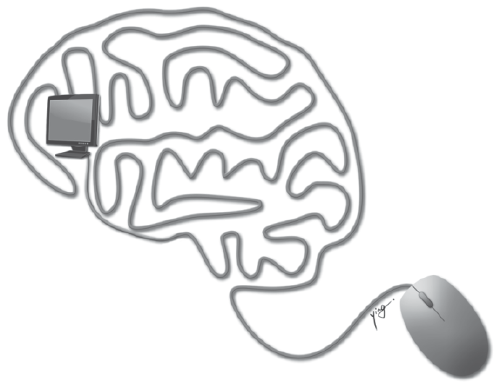


[Photo by Wang Xiaoying/chinadaily.com.cn]
A new study by Chinese researchers using medical imaging has found differences in the brain activity of men and women addicted to internet gaming.
The study, published in the international journal Brain Imaging and Behavior, says addicted men have lower impulse control compared with women, indicating that men are more likely to become addicted to internet gaming.
Researchers from Renji Hospital, which is affiliated with Shanghai Jiaotong University, recruited 105 Chinese participants for the study, which had two groups-one with 32 men and 23 women addicted to gaming, and the other with 30 men and 22 women who were not addicted.
The addicted participants were recruited from the Shanghai Mental Health Center.
They completed a diagnostic questionnaire for gaming addiction, and reported their gaming history and number of hours playing per week. Researchers also talked with their families to confirm the information.
All participants underwent resting-state functional magnetic resonance imaging, or fMRI, a widely used medical imaging technique to measure brain activity.
Through fMRI scans, researchers found that men addicted to gaming had lower brain activity in the left superior frontal gyrus, a brain region associated with impulse control, than nonaddicted men. The lower the activity levels, the poorer the impulse control.
Addicted women, however, showed no differences compared with the healthy female group.
Researchers also studied the functional connectivity between brain regions, which were lower in men with addiction than in nonaddicted men, but showed no differences in the female groups.
The study had its limitations. For example, it failed to match the gender of addicted people completely, and it did not find significant differences between addicted men and women. In addition, most of the participants were adults, and so more, and younger, samples are needed in future studies, the researchers said.
Despite such limitations, the findings suggest that activity levels displayed in the brain region could be biomarkers to evaluate the behavioral inhibitions of gaming-addicted men, they said.
Gaming disorder was listed as a mental disorder by the World Health Organization earlier this year. People with the disorder have impaired control over gaming and give it increased priority in their lives-to the extent that gaming takes precedence over other life interests and daily activities.
This behavior has negative effects on family, social, educational, occupational and other important areas.
 Fire brigade in Shanghai holds group wedding
Fire brigade in Shanghai holds group wedding Tourists enjoy ice sculptures in Datan Town, north China
Tourists enjoy ice sculptures in Datan Town, north China Sunset scenery of Dayan Pagoda in Xi'an
Sunset scenery of Dayan Pagoda in Xi'an Tourists have fun at scenic spot in Nanlong Town, NW China
Tourists have fun at scenic spot in Nanlong Town, NW China Harbin attracts tourists by making best use of ice in winter
Harbin attracts tourists by making best use of ice in winter In pics: FIS Alpine Ski Women's World Cup Slalom
In pics: FIS Alpine Ski Women's World Cup Slalom Black-necked cranes rest at reservoir in Lhunzhub County, Lhasa
Black-necked cranes rest at reservoir in Lhunzhub County, Lhasa China's FAST telescope will be available to foreign scientists in April
China's FAST telescope will be available to foreign scientists in April "She power" plays indispensable role in poverty alleviation
"She power" plays indispensable role in poverty alleviation Top 10 world news events of People's Daily in 2020
Top 10 world news events of People's Daily in 2020 Top 10 China news events of People's Daily in 2020
Top 10 China news events of People's Daily in 2020 Top 10 media buzzwords of 2020
Top 10 media buzzwords of 2020 Year-ender:10 major tourism stories of 2020
Year-ender:10 major tourism stories of 2020 No interference in Venezuelan issues
No interference in Venezuelan issues
 Biz prepares for trade spat
Biz prepares for trade spat
 Broadcasting Continent
Broadcasting Continent Australia wins Chinese CEOs as US loses
Australia wins Chinese CEOs as US loses